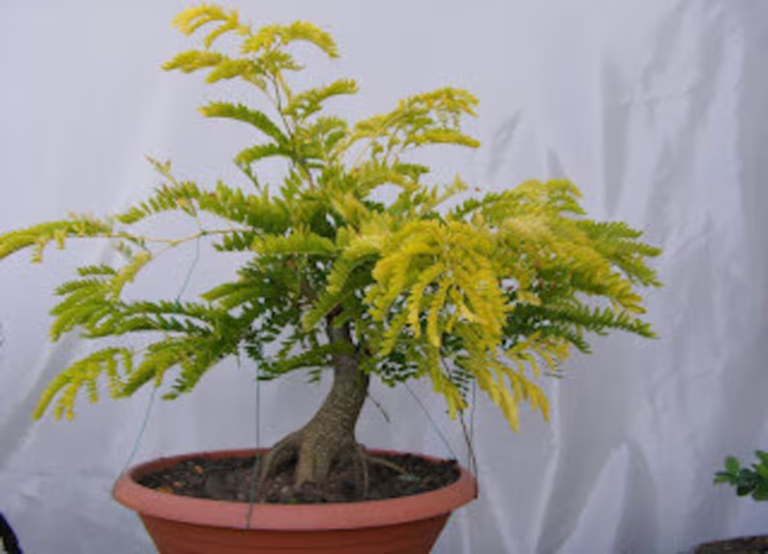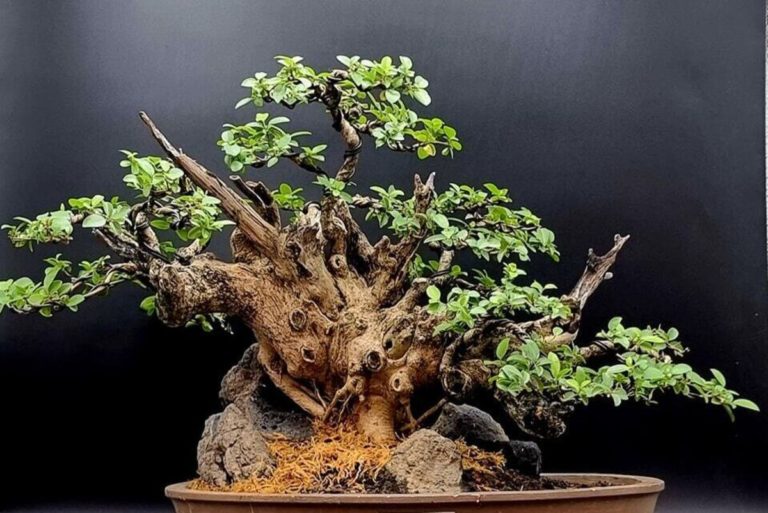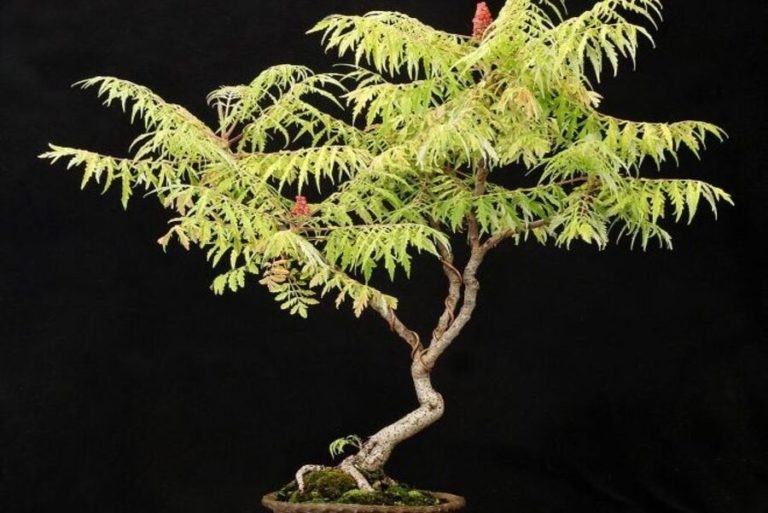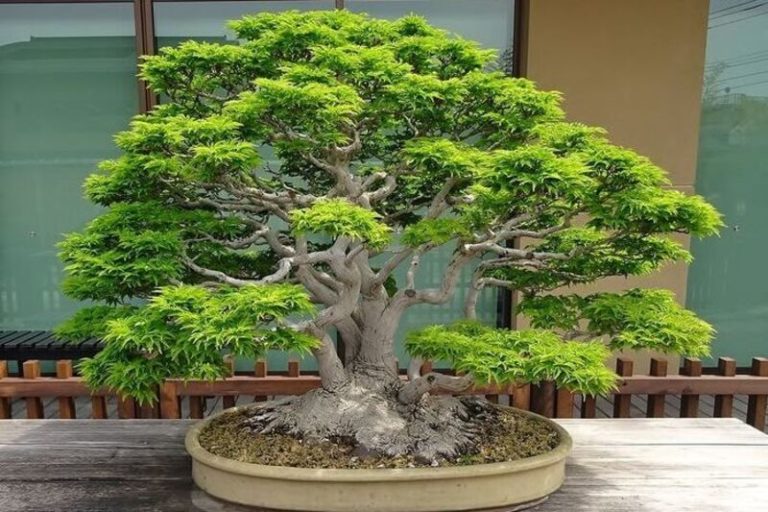Bonsai Jack Bark: The Key to Maintaining Your Bonsai Tree’s Beauty and Vitality
Bonsai Jack Bark is a substrate used for maintaining miniature trees in the Japanese art of bonsai. The high-quality, all-natural materials used in its construction have been carefully selected for their beneficial effects on bonsai trees. Improved nutrient absorption, water retention, pest and disease resistance, and increased air circulation are just some of the benefits of Bonsai Jack Bark for bonsai trees.
This article will cover the uses of Bonsai Jack Bark, its advantages, and some helpful maintenance techniques for bonsai plants.
What is Bonsai Jack Bark?
A bark product manufactured specifically for caring for bonsai plants is called Bonsai Jack Bark. It is constructed from premium natural materials that have been carefully chosen to offer bonsai trees the best potential advantages. Because of its fine texture, Bonsai Jack Bark offers a rich supply of nutrients to the tree and promotes optimal water retention and aeration. As Bonsai Jack Bark doesn’t include any dangerous additions or chemicals, it’s both safe for the environment and the trees. It is a crucial component of bonsai tree maintenance since it aids in preserving and feeding the tree, which promotes long-term health.
Benefits of Bonsai Jack Bark for Bonsai Trees
Bonsai Jack Bark offers several benefits for bonsai trees. Here are some of the main benefits:
- Improved Nutrient Absorption: Bonsai Jack Bark provides a rich source of nutrients for the bonsai tree. It is made from natural materials that release nutrients slowly over time, providing a consistent source of nourishment to the tree.
- Better Water Retention: Bonsai Jack Bark is excellent at maintaining soil moisture, which is crucial for the health of the tree. It aids in preventing the soil from rapidly drying up, which might stress the tree and impede development.
- Protection from Pests and Disease: Bonsai Jack Bark can aid in the protection of the tree from hazardous insects and illnesses. It contains natural compounds that keep pests at bay and prevent hazardous germs and fungus from forming.
- Improved Aeration: Bonsai Jack Bark improves aeration of the soil surrounding the tree. The fine texture of the bark allows air to move freely, which is essential for good root growth.
By using Bonsai Jack Bark in bonsai tree care, you can help promote healthy growth and improve the overall health of your bonsai tree.
How to Use Bonsai Jack Bark
Using Bonsai Jack Bark is simple, and it may be utilized to benefit your bonsai tree in a variety of ways. Here are some suggestions for using Bonsai Jack Bark:
- Use it as a Potting Mix: Bonsai Jack Bark may be used as a potting mix for your bonsai tree. Mix it in the right quantities with other soil components such as sand, perlite, and compost to produce a nutrient-rich, well-draining soil mix.
- Use it as a Top Dressing: Bonsai Jack Bark may be used as an ornamental finish for your miniature tree. To protect moisture and soil nutrients from evaporating from the soil surrounding the tree, spread a thin layer of bark on the ground.
- Use it for Propagation: You may grow bonsai trees from seed using bonsai jack bark. It may be used as a growing medium to give cuttings and seedlings the nutrients and moisture they need for wholesome growth.
- Use it for Soil Conditioning: The soil around the tree may be improved using Bonsai Jack Bark. It aids in the improvement of soil structure and aeration, which is necessary for healthy root growth.
It is vital to apply the correct amount of Bonsai Jack Bark based on the size and species of your bonsai tree. Follow the manufacturer’s recommendations and monitor your tree’s health frequently to ensure that it is thriving.
Tips for Caring for Bonsai Trees with Bonsai Jack Bark
If you are using Bonsai Jack Bark to care for your bonsai tree, here are some tips to help ensure that it remains healthy and thrives:
- Watering: It is important to water your bonsai tree regularly to ensure that the soil remains moist. Bonsai Jack Bark helps keep water in the soil, but the soil still needs to be checked often and the tree watered when needed.
- Fertilizing: Bonsai Jack Bark is an excellent source of nutrients for your bonsai tree, although frequent fertilization is still necessary. Use a high-quality bonsai fertilizer and adhere to the included directions.
- Pruning: Frequent trimming is required to preserve the health and form of your bonsai tree. Employ use clean, sharp pruning shears and prune only when necessary.
- Repotting: Every one to two years, bonsai trees should be repotted so that they have sufficient room to grow and produce healthy roots. Be sure to use new soil and Bonsai Jack Bark mix before repotting.
- Sunlight: To develop and thrive, bonsai trees require proper exposure to light. Put your tree in an area that receives at least six hours of direct sunshine daily.
Bonsai Jack Bark Care Sheet:
| Aspect | Care Tips |
| Watering | Water regularly, avoid waterlogging |
| Sunlight | Place in bright, indirect sunlight |
| Temperature | Keep in cool temperatures (50-60°F) |
| Soil | Use well-draining, slightly acidic soil with sand/gravel |
| Fertilizer | Fertilize every 2-4 weeks during growing season |
| Pruning | Prune regularly to maintain shape and remove dead branches |
| Repotting | Repot every 2-3 years in early spring |
| Pests/Disease | Watch for spider mites and aphids, treat promptly if detected |
By utilizing Bonsai Jack Bark alongside the proper techniques for caring for a bonsai tree and following these suggestions, you can ensure that your bonsai tree remains healthy and vibrant for many years.
In conclusion
Bonsai Jack Bark is an excellent choice for anyone looking to care for their bonsai tree. It offers several benefits, including improved nutrient absorption, better water retention, protection from pests and disease, and improved aeration. By using Bonsai Jack Bark in your bonsai tree care routine, you can help promote healthy growth and improve the overall health of your tree. Remember to water, fertilize, prune, and repot your bonsai tree regularly, and give it adequate sunlight to ensure that it thrives. With the right care and the use of Bonsai Jack Bark, your bonsai tree can be a beautiful and healthy addition to your home or garden for many years to come.
FAQ:
Q: What is Bonsai Jack Bark?
A: Bonsai Jack Bark is a brand of high-quality bonsai soil mix made from 100% pure fir bark. It is designed specifically for use in bonsai cultivation and is popular among bonsai enthusiasts.
Q: What are the advantages of using Bonsai Jack Bark?
A: Bonsai Jack Bark lets water drain and air flow well, which is important for bonsai trees’ health and growth. It is also free of pollutants and has the right pH level, so the tree roots can grow in a stable environment.
Q: How do I use Bonsai Jack Bark?
A: Bonsai Jack Bark should be used as a soil component in a bonsai soil mix. It can be used alone or mixed with other components such as pumice, lava rock, or Akadama. The amount of Bonsai Jack Bark used in the mix will depend on the species of bonsai tree being grown and its individual requirements.
Q: Where can I buy Bonsai Jack Bark?
A: You can buy Bonsai Jack Bark from the Bonsai Jack website or from some bonsai shops. It might also be sold on websites like Amazon and eBay.
Q: Is Bonsai Jack Bark suitable for all types of bonsai trees?
A: Bonsai Jack Bark is good for a lot of different kinds of bonsai trees, but not all of them. It works best for trees that need a soil mix that drains well, like conifers and other evergreens. Tropical trees, which like soil that holds more water, might not do well in a soil mix made with Bonsai Jack Bark.
Q: Can Bonsai Jack Bark be reused?
A: With careful care, Bonsai Jack Bark may be reused for several years. It should be sifted after each usage to eliminate any debris and then sanitized before reuse. This may be accomplished by roasting the bark for 30-60 minutes at 180-200°F (82-93°C).
Q: Is Bonsai Jack Bark organic?
A: Yes, Bonsai Jack Bark is made from 100% pure fir bark and is considered organic. It does not contain any synthetic fertilizers or pesticides.
Also Read:
Blue Jacaranda Bonsai: A Guide to Caring for and Displaying this Beautiful Tree







